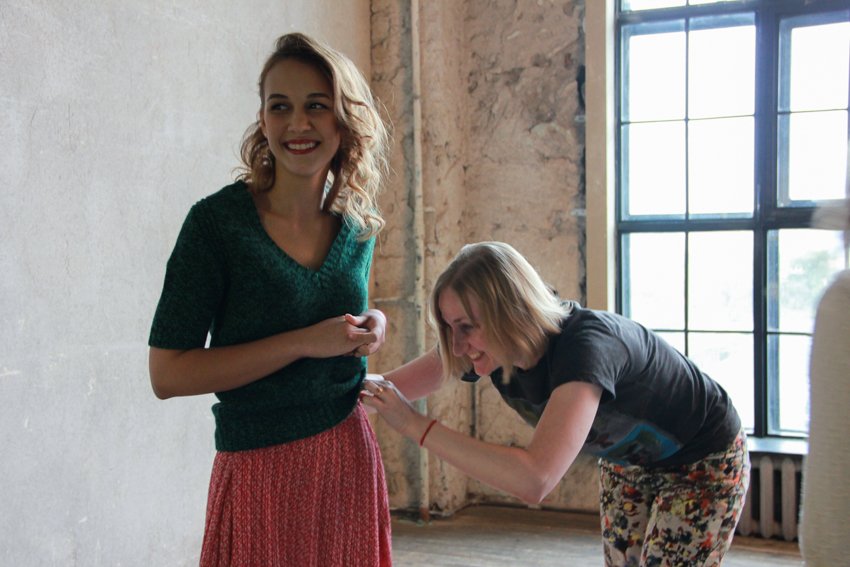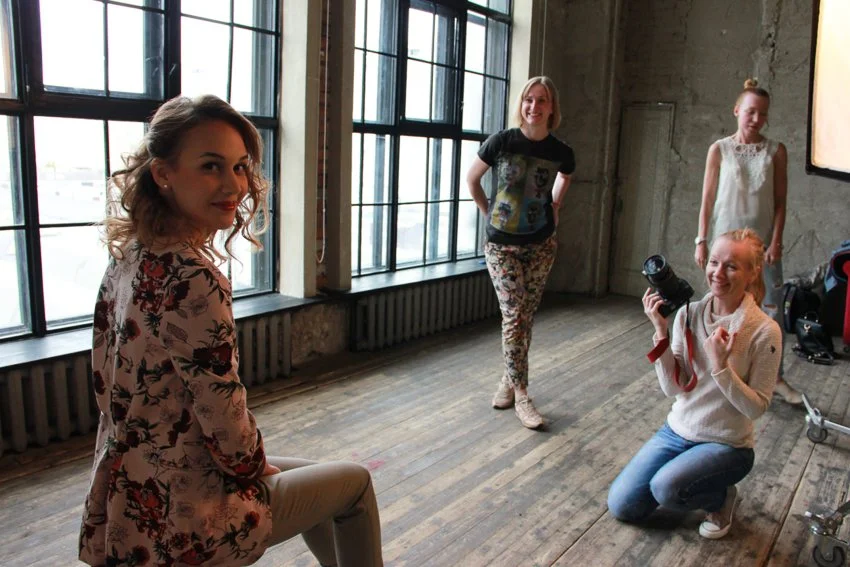Person of this month - Masha Skrypnik
This month’s featured person is Masha Skrypnik, who feels much more confident behind the camera than in front of it. Masha, a future camerawoman, is currently studying at the Institute of Television. It all began with photography—a common hobby among teenage hospital patients.
Seven years ago, Masha was diagnosed with leukemia. It took her three years to recover. Although she had to give up her dream of a sports career, she learned to be patient and to see beauty in the everyday. Photography and Podari Zhizn’s volunteer project “Filming School”—where young patients learn to shoot and edit video—helped spark her passion for cinema.
Masha, please tell us about the new and interesting events in your life.
This is probably the best time of my life. I’ve graduated from school, taken entrance courses, and now I’m in my first year of university, studying to be a camerawoman. My love for the camera began at the Filming School. I told myself, “This is what I want to do—I want to be a director of photography.” And here I am, on my way to that goal.
Seven years ago, you faced another challenge—your illness. How did it start?
I was 10 and training in gymnastics. During a routine check-up, doctors noticed something off in my test results. After repeating the tests a few times, I was hospitalized, and the next day I was diagnosed with blood cancer.
How did you react to the diagnosis?
My reaction was pretty unusual. That summer, our team was supposed to go to a training camp in Crimea. I was upset—not about the treatment—but that I couldn’t go to the camp. I even asked my mom to let me go without training! I was a child and didn’t realize how serious the situation was.
Your treatment lasted almost three years. What are your memories of that time?
It was tough. I looked different and compared myself constantly to others. I felt awful after chemo, and the hormones made my emotions unstable. But at the same time, it was a strange kind of childhood. Before, I had spent all my time training, but in the hospital, I made many friends and had time to play, read, draw, and create crafts.
What helped you keep fighting during the hardest times?
At first, I didn’t need much encouragement—I didn’t fully understand the danger. I told myself, “Don’t cry—if your mom sees you cry, she’ll cry too.” But one time, I had a rough stretch—extra weeks on hormones, constant nosebleeds. I wanted it all to stop. That’s when volunteers from the charity came in. Thanks to them, I wasn’t left alone with my fears. Their support meant everything.
What was it like returning to “normal life” after the hospital?
Even though I lived in Moscow, I felt disconnected from normal life. I was 12 or 13—the age of making new friends and first crushes—and I’d missed three years of that. I felt like an outsider. But my classmates kept in touch and visited me, so I eventually reintegrated.
Did you want to forget the illness?
Not forget, but I didn’t want others asking too many questions. It’s personal. Still, I believe you must remember what you’ve been through. It changes your outlook and your priorities.
How did it change your outlook?
I became more sociable and compassionate. If I see someone in need, I want to help. I truly understand how important support is. I’m also stronger now—I face difficulties head-on and try to find solutions.
Did your illness change your family as well?
Yes—especially my mother. She worries a lot. I take things more lightly—like cuts or scrapes—but to her, they feel like a crisis. After everything she went through with me, I understand. I’m deeply grateful for her love and support.
What would you say to kids still undergoing treatment—and their parents?
Ignore judgmental glances and words. Don’t let your appearance bother you—this is your fight for life and your future. Everything will work out. To parents: I wish you strength and patience—enough not just for yourselves but for your children too.
Zhenya Vaneeva recorded 12 inspiring stories from young cancer survivors. Each month, we’ll share one of these powerful personal stories.




